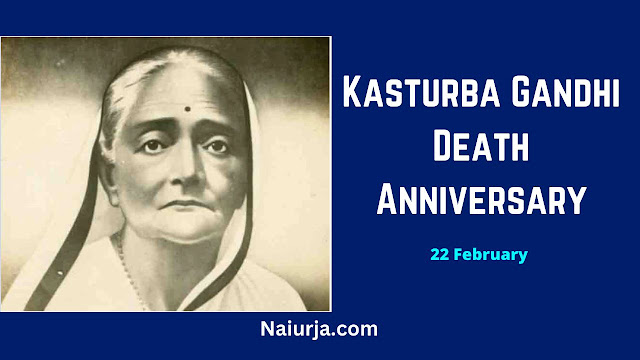Kasturba Gandhi
Kasturba Gandhi (born Kastur Kapadia) was the wife of Mahatma Gandhi, the leader of India’s independence movement. He was born on April 11, 1869 in Porbandar, India and died on February 22, 1944 in Pune, India.
Kasturba and Mahatma Gandhi were married in 1883 when she was just 13 and had four sons. Kasturba became deeply involved in her husband’s activism and played a key role in India’s struggle for independence from British rule. She was an active participant in various peaceful protests and was frequently arrested and imprisoned for her participation in the Indian independence movement.
Kasturba also played an important role in the social and economic reforms of the Indian nationalist movement, advocating for the rights of women and marginalized communities. She led campaigns against child marriage and the caste system, and worked to promote the education and empowerment of women.
Kasturba suffered from poor health throughout her life and died while imprisoned by the British authorities. He is remembered as a courageous and committed activist who dedicated his life to the struggle for Indian independence and social justice..
Death of Kasturba Gandhi
Kasturba Gandhi died on February 22, 1944, at the Aga Khan Palace in Pune, India, where she had been detained by the British authorities along with her husband, Mahatma Gandhi, and other Indian nationalist leaders.
She was suffering from chronic bronchitis and had also developed a severe case of pneumonia. Despite efforts to treat her illness, her condition rapidly deteriorated, and she eventually succumbed to her illness at the age of 74.
Kasturba’s death was a significant blow to the Indian nationalist movement, as she was widely respected and admired for her courage and commitment to social justice. Her death was mourned by people across India, and she remains an inspiration to generations of Indians who continue to fight for equality and justice.
Tomb of Kasturba Bai
The Samadhi (memorial) of Kasturba Gandhi, also known as Kasturba Ba, is located at the Aga Khan Palace in Pune, India. The Aga Khan Palace was the place where Kasturba Gandhi breathed her last on February 22, 1944, while she was imprisoned by the British colonial authorities along with Mahatma Gandhi and other freedom fighters.
After her death, Kasturba’s body was cremated in a nearby crematorium, and her ashes were later placed in a mausoleum at the Aga Khan Palace. The mausoleum is a simple and serene structure that serves as a memorial to Kasturba’s life and contribution to India’s freedom struggle.
The Aga Khan Palace is now a national monument and serves as a museum and a memorial to Mahatma Gandhi, Kasturba Gandhi and other leaders of the Indian independence movement who were imprisoned there. Kasturba Bai’s samadhi remains an important place of pilgrimage for those who wish to honor and respect her memory.
Kasturba Gandhi’s slogan
Kasturba Gandhi is remembered for her role as a social reformer and activist for India’s independence movement, but she did not have a specific slogan that she became widely associated with. However, she is best known for her strong commitment to nonviolence and social justice, which were principles she shared with her husband, Mahatma Gandhi.
Kasturba’s activism focused on issues such as women’s rights, education and social equality. She worked to promote gender equality and was an outspoken advocate for the rights of marginalized communities. Kasturba also actively participated in various peaceful protests and was frequently arrested and imprisoned for her involvement in the Indian independence movement.
In her personal life, Kasturba practiced simplicity, self-reliance and non-violence. She played an important role in shaping the philosophy of Mahatma Gandhi and was a trusted advisor and partner in his political work. While Kasturba did not have a specific slogan, her life and work continue to inspire generations of Indians who strive for justice and equality.

.jpg)

